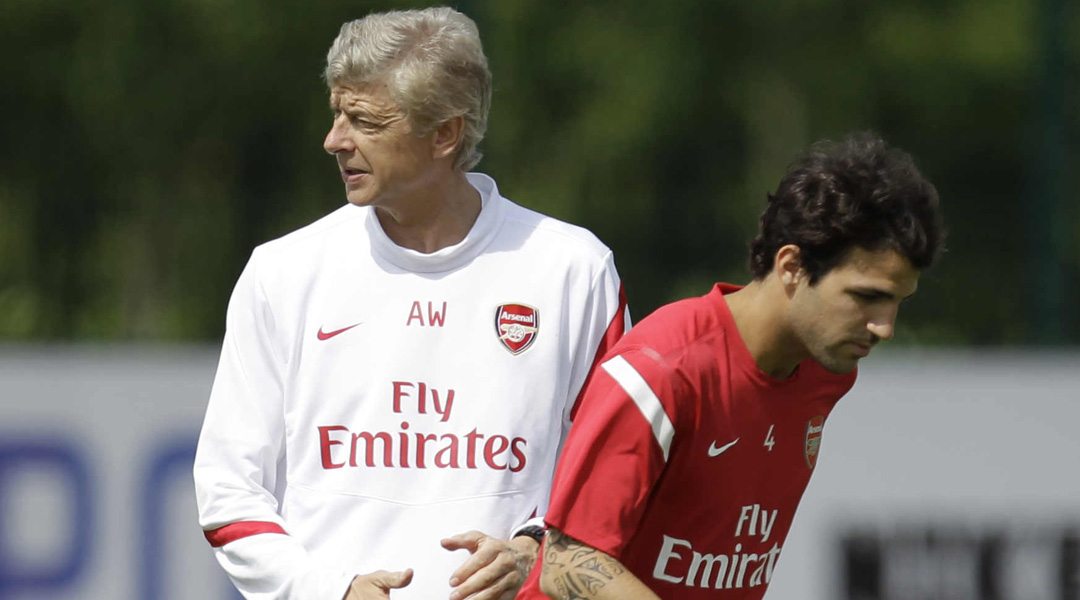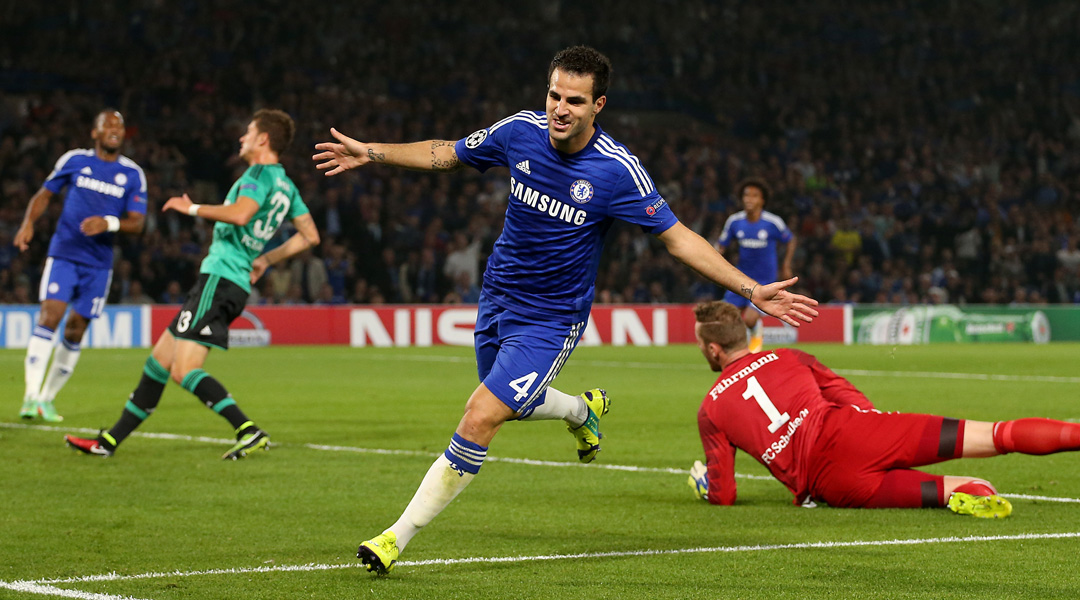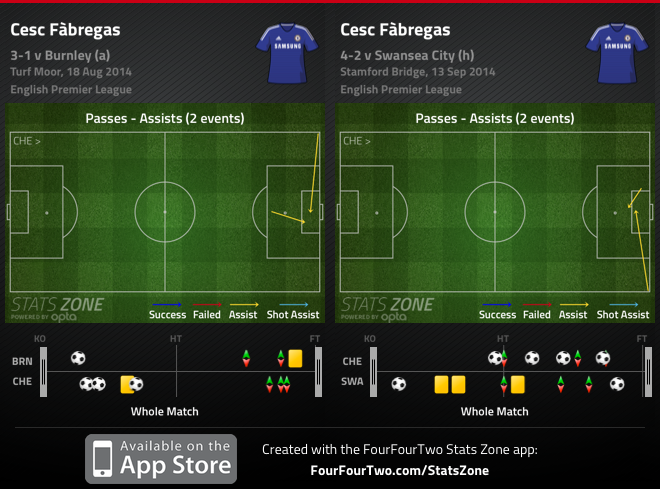Why Arsene Wenger was right not to sign Cesc Fabregas this summer
With Cesc Fabregas set for an emotional reunion with his former club this weekend, Michael Cox explains why the Gunners were right to spend their summer transfer kitty elsewhere...

It’s unfortunate that Arsenal’s first meeting with Cesc Fabregas in a Chelsea shirt comes when Arsene Wenger is suffering from injuries in central midfield.
Aaron Ramsey is definitely out, Mikel Arteta could join him, although Jack Wilshere should be available after an injury scare in the 1-1 draw against Tottenham last weekend.
Nevertheless, it’s inevitable Arsenal fans will be frustrated at seeing Fabregas playing for the ‘wrong’ side. With Ramsey sidelined, the Spaniard would have been perfect in a fixture Arsenal lost 6-0 last season.
For his part, Fabregas wanted to return to Arsenal this summer. “Arsenal was my first option,” he admitted earlier this season.
“They told me they already had [Mesut] Ozil and therefore they didn't need me... changing clubs is part of the game and people must remember it was Arsenal who didn't take up the buy-back option for me.”

It was Wenger who vetoed the rejection, a decision which might look foolish if Fabregas runs riot with his devastating, direct midfield runs. Nevertheless, Wenger made the right choice.
Too many cooks
Get FourFourTwo Newsletter
The best features, fun and footballing quizzes, straight to your inbox every week.
Arsenal have played both 4-2-3-1 and 4-3-3 this season, but both feature one player sitting and protecting the defence, usually Arteta, while the other two have freedom to join the attack. In the 4-2-3-1, Ramsey moves forward to join Ozil, whereas in the 4-3-3, it’s usually Ramsey alongside Wilshere or Santi Cazorla.
Either way, Arsenal boast four good options for those two attack-minded midfield slots. Ozil’s form has fluctuated, but he remains a world-class performer and someone Arsenal should base their side around.
Ramsey was Arsenal’s standout player last season, and a very similar player to Fabregas in his latter Arsenal years, having been transformed from a sensible passer to a rampant goalscorer. Cazorla, meanwhile, provides great passing quality, while Wilshere has the potential to become a top-class all-round midfielder, even if his career has stalled over the past couple of years.
Every squad needs depth, of course, but these four are suitable options for those two midfield slots. With Tomas Rosicky and even Alex Oxlade-Chamberlain also capable of playing there, the fact remains that central midfield was the one position Arsenal categorically didn’t need to strengthen in.
When Fabregas played his last game for the club, Arteta, Cazorla and Ozil were yet to arrive. Wilshere was enjoying his first full season, while Ramsey hadn’t completely recovered from serious injury. Things have changed, and Arsenal had moved on.
The alternative, of course, is to move an existing player – or Fabregas himself – deeper, considering some believe Arsenal lack a top-class deep midfielder, but it’s difficult to see who would adapt smoothly.
Fabregas might wear No.4, traditionally the number of the deep-lying midfielder at Barcelona, but he has become increasingly attacking and doesn’t have the discipline to play deep. At Chelsea so far he’s racked up the assists, with two against both Burnley and Swansa.

Cazorla doesn’t have the physique, while Wilshere and Ramsey’s games depend upon their ability to surge forward, much like Fabregas. Fabregas and Ramsey could play in the same team in a 4-3-3, which would mean Ozil permanently deployed on the flank, where he appears much less effective. The move for Fabregas would have made little sense.
Head over heart
There was also an element of pride in Wenger’s decision. While he retains great affection for Fabregas, some at Arsenal were unhappy with the Spaniard’s behaviour during his final season, believing he sulked having failed to secure a return to Barca the previous summer, setting a poor example as captain.
A crucial part of Arsenal’s philosophy is about off-field harmony and cohesion, and when coupled with concerns about his discipline at Barcelona, it’s another reason to turn him down.
After all, Arsenal had a limited transfer budget this summer, and needed to strengthen up front, in defence, and in goal – they did all three. They arguably required a holding midfielder too.
Fabregas, however, was the epitome of the type of footballer Arsenal already had. So often, Arsenal are criticised for stockpiling the same type of player – this time, they rightly stepped away.
Maybe, if Wenger had known Fabregas would only last three years at Barca, he would have planned accordingly. “I have no regrets about [not re-signing him] at all,” Wenger said earlier this year. “My regret is that he left.”
But football is unpredictable. Fabregas playing for the rivals of his former club, and for the arch rival of the manager who lured him away from Arsenal, makes little sense.
Arsenal turning him down, however, made perfect sense.
Chelsea vs Arsenal LIVE ANALYSIS with Stats Zone
